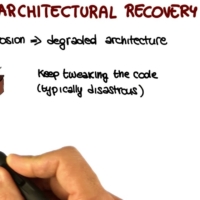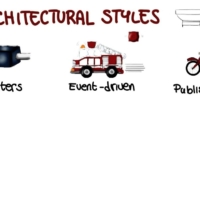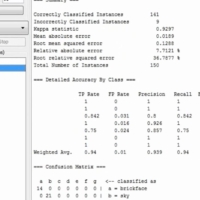Architectural Recovery – Georgia Tech – Software Development Process

And sometimes architectural drift and erosion get you so far away from the point where your software architecture should be that your architecture is completely degraded, at this point, you have two main options. The first option is to keep frantically tweaking the code, And this normally leads to disaster. Why? Because you only make things worse, You don’t know exactly what you are changing and therefore you’re stabbing in the dark trying to fix your system. The other possibility is that you can try to determine […]
More info










